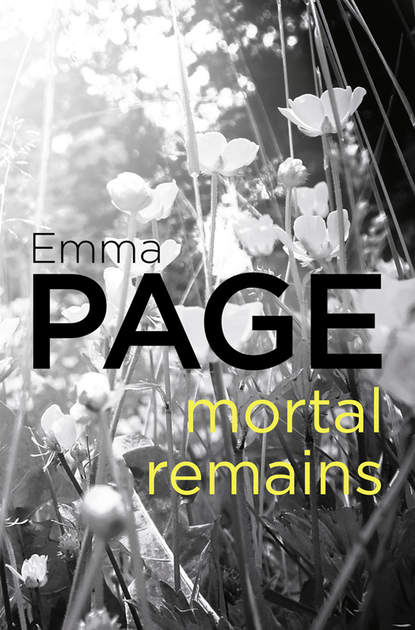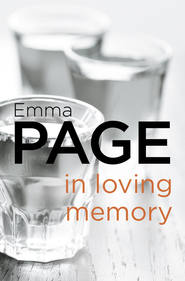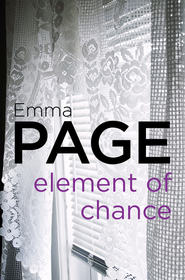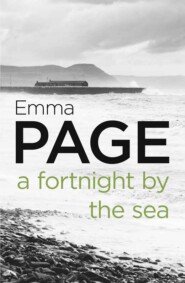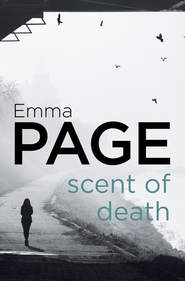По всем вопросам обращайтесь на: info@litportal.ru
(©) 2003-2024.
✖
Mortal Remains
Автор
Год написания книги
2018
Настройки чтения
Размер шрифта
Высота строк
Поля
Whatever Tom Mansell’s motives had been for encouraging the match, he had come increasingly over the last few years to value his son-in-law’s services, to rely on him as an able assistant and deputy. Lester was now indisputably Mansell’s right-hand man; he had hopes of more formal promotion before long. He had a shrewd notion changes were in the wind; he was certain they would be to his own advantage. Mansell always kept his cards close to his chest until the last possible moment but Lester believed he knew the next objective Mansell was contemplating: the opening of a second yard.
He let himself into the house. Diane would soon be home. She was a trained nurse, employed in that capacity at a large factory in Cannonbridge. She was currently working the second shift, two till ten, she had done so for a few months and had found it suited her, she liked the long, free mornings.
Lester went into the sitting room and settled himself down to watch the news. But it had been a long day, his eyes began to close. Before long he was asleep, slipping shortly into a spell of vivid dreaming.
He was driving an open sports car in sparkling sunshine, at tremendous speed and with great exhilaration, along a steeply twisting road, the wind whistling through his hair. He shouted in exuberance as he rounded a bend with a swooping roar. All at once he saw before him a precipitous drop, down on to jagged rocks, into a boiling sea. He slammed on the brakes. There was no response.
The car whirled off the road, hurtling out through the brilliant air, describing a soaring arc before it began to fall. Down, down, faster and faster, towards the vicious rocks, the churning waves.
He started up in his chair, wide awake, his face running with sweat, his heart pounding. As he strove to steady himself he heard Diane drive up.
She came into the room a few minutes later, smiling cheerfully. She wasn’t unduly fatigued after her stint at the factory, she found it far less demanding than hospital work.
They greeted each other with affection. A little later, over coffee, Lester remembered something he had to tell her. ‘I ran into one of the Acorn committee today. He said the tickets for the dinner-dance will be ready tomorrow.’ The Acorn Club was a prestigious association, founded one hundred years ago by a group of local businessmen – among them Lester’s great-grandfather – with the aim of raising money for charity. The annual dinner-dance, always held on the last Friday in October, was the outstanding event in the Cannonbridge social calendar, a fundraiser on an impressive scale. There was always a rush for tickets; this year, because of the centenary, it was likely to prove a mad scramble.
‘I’ll get the tickets in the morning,’ Diane promised. They always looked forward to the event, they both enjoyed the big local social occasions. Diane had arranged some time ago to have the evening off work.
Her expression suddenly changed to a frown. ‘I suppose Edgar and Claire will be there?’
‘Yes, of course they will,’ Lester responded. ‘Edgar’s expected to go, in his job. And Claire’s gone with him every year since they’ve been married.’
Her frown deepened. She was three years younger than Claire, no small gap during the years of growing up; they hadn’t known each other in those days. Claire had married Edgar – much to everyone’s surprise, not least that of Edgar himself – twelve months after Lester’s marriage to Diane. The two women had never taken to each other. Relations between the households had teetered along on a shaky footing, finally petering out altogether a few months ago.
Diane’s tone was sulky. ‘If Claire’s going to be there, then I’m not going.’ Ill humour gave her face a tigerish look.
Lester was astounded. ‘Of course you’re going! Your father’s making a big donation this year. His evening will be ruined if you’re not there to see it.’ The donation ceremony, with its formal announcing of names and amounts, punctuated with drum rolls and storms of applause, was always the highlight of the evening. ‘If you don’t go, I can’t go. It would look very odd if I went without you.’
Her face remained mutinous.
He tried another tack. ‘Stuart will be there this year, now he’s old enough to go.’ Stuart was Diane’s younger brother, they had always been close. And Lester had always got on well with Stuart. ‘It would spoil all his pleasure in going if you stayed away.’
He detected a faint softening of her expression, his tone grew cajoling. ‘I honestly can’t see why it should bother you in the least if Claire’s there. The hall’s big enough in all conscience, there isn’t the slightest need for you to go anywhere near either of them all evening.’
‘No, I suppose not,’ Diane grudgingly acknowledged.
He delivered his masterstroke. ‘You go out and get yourself something really stunning to wear, guaranteed to knock Claire’s eye out. Never mind what it costs, I’ll pay.’ Diane had always envied Claire her style of looks, her easy elegance.
She began to smile. ‘All right,’ she conceded. ‘You win.’
He jumped up, went over and flung an arm round her. He gave her shoulders a squeeze, bent his head and planted a jubilant kiss on her cheek. ‘That’s my girl! We’ll have a great evening! You’ll see!’
CHAPTER 2 (#ulink_3e21c1ca-4001-59f8-802b-8e312eebcfbc)
A mile or so from the dwelling he had built for his daughter and son-in-law, Tom Mansell’s splendid modern residence stood on the brow of a hill in a superb situation with magnificent views.
On Wednesday morning Mansell woke even earlier than usual. His brain, ever active with plans and enterprises, even during sleep, roused him to full wakefulness before five. He knew the moment he opened his eyes it was all settled, his mind was definitely made up.
He pulled on a dressing-gown and made his way silently from the room, along the corridor, past the bedroom of his son Stuart, eighteen years old now, learning the ropes at the yard – under his own careful supervision – since leaving school over twelve months ago. Past the flight of stairs leading up to the suite of rooms set aside for his housekeeper, a highly respectable widow, good-natured and motherly, in her sixties now. She had kept house for him for the past fifteen years, had ably and cheerfully assisted in the upbringing of his two children. The last ten of those years had been spent in this house, the house he had built for himself and his children, the kind of house he had always dreamed of.
He went down the stairs, towards the kitchen. He was a muscular man, forty-eight years old, a little over medium height, very striking in appearance. His hair was already snow-white, though still thick and wavy, but his heavy eyebrows had remained jet black. His skin was deeply tanned, his eyes a piercing sapphire blue. He exuded a feeling of raw power.
In the kitchen he made himself a pot of tea and carried it along to his study. He sat down at his desk and addressed himself to the matter that had been occupying his thoughts for some time now: the desirability of opening a second yard. Wychford, yes, that was definitely the place; he was getting more and more work these days over in that direction.
He smiled as he drank his tea. He would deeply relish the challenge of setting about cutting himself a second slice of the cake. He would move Lester over to take charge of the new branch. Lester would do well there, he had a good head on his shoulders. He had never traded on his position as the boss’s son-in-law, had always pulled his full weight, he had more than earned his promotion. And he might very well find a spot in the new set-up for Norman Griffin. A useful and loyal henchman, the right stuff in him, the backbone to start taking on a bit of responsibility.
He stood up and went to a wall map. Pins and flags marked current developments, projects still under discussion, sites of possible future interest, and, most mouthwatering of all, likely locations for the second yard. He studied the map closely, then he moved on to consult the calendar – his own trade calendar, expensively produced, beautifully photographed, portraying the best of the firm’s work over the previous year. It bore the correct name of the firm, Dobie and Mansell, though the business was known everywhere these days simply as Mansell‘s.
Dobie was now retired, living abroad. The firm had been started by Dobie’s father after the First World War, Tom Mansell had come in fifteen years ago. Dobie had taken no active part in the management since his retirement. As long as his share of the steadily increasing profits kept rolling in, he didn’t bother his head about what went on in the business.
Mansell fingered back the glossy pages, considering dates: September . . . October . . . November . . . His face broke into a smile, he jabbed a finger down. ‘That’s it!’ he said aloud. Sunday, November 11. He’d have them all here together for a slap-up lunch, Lester, Diane, Stuart, he’d make his announcement then.
It pleased his fancy to choose the anniversary of the day he had taken over sole active control of the firm. Dobie had left the yard for the last time thirteen years ago, on November 10, at the end of the working day. Early next morning, before anyone was about, Mansell had driven into the yard. He had walked about the entire place with a great grin on his face, knowing it was all before him, tasting the powerful sweetness of the moment.
He picked up one of the framed photographs ranged along a shelf, one he particularly liked: Diane and Lester, strolling in the rose garden here, holding hands, smiling at each other. He’d taken the photograph himself one Sunday afternoon when they’d come to tea, not long after they’d got back from their honeymoon.
He gazed fondly down at the smiling pair. How right he had been to encourage the match – in spite of the opposition from that brother of Lester’s. Edgar always struck Mansell as a dry stick, though still a couple of years away from forty. His thoughts were briefly side-tracked by a vision of Claire, beautiful and elegant. The question rose in his mind, by no means for the first time: Whatever could have persuaded a woman like that to marry such a man?
He dragged his thoughts back to Diane and Lester. No sign yet of starting a family. He drew a deep sigh. Time enough, Diane always told him whenever he raised the matter with her. Another year or two, she’d said the last time he’d brought it up, then I really will settle down to it.
He replaced the photograph and picked up another, more recent, more formally posed: Stuart on his eighteenth birthday. It was like looking at a portrait of himself as a young man. I suppose it might not be all that many years before we have Stuart thinking about getting married, he told himself with a lightening of his spirits. Not that Stuart had any steady girlfriend as yet. Mansell fervently hoped that when the time came his son would have the sense to find himself a girl with old-fashioned ideas of a home and babies, not some hard-nosed modern female with her sights set chiefly on a career.
He put the photograph back and returned to his desk. He sat staring ahead, lost in thought.
Children, grandchildren, great-grandchildren, they were what gave life and substance to it all, made the whole shooting-match more than a dance of shadows on a flickering screen. The unbroken line of one’s own flesh and blood stretching into the misty centuries ahead, that was what took away the sting from the stabbing thought of one’s own mortality, that must in the end prevail, struggle against it as one might.
Over in Fairbourne, Edgar Holroyd’s day didn’t begin quite so early. At six-thirty precisely he opened his eyes in the spacious front bedroom looking out over the common. Never any need for an alarm, he always woke at the same hour, winter and summer; he had trained himself to that useful habit long ago, as a lad.
A still morning, little sound of traffic as yet. Pale streaks of light stole in around the edges of the curtains. From the trees screening the garden the collared doves murmured their ceaseless calculation: Thirteen six, thirteen six.
He glanced across at the other bed. Claire lay with her back to him, curled in a posture of deep sleep. He moved his covers gently back, eased himself noiselessly out, silently drew on slippers and dressing-gown.
With barely a whisper of sound he let himself out of the room and went stealthily along the landing, into the small bedroom he had used as a dressing room since his marriage. He got into jogging gear and went down to the kitchen where he drank a glass of orange juice and ate the single piece of rye crispbread he allowed himself before setting out.
He went for his early-morning jog in all but the worst weather. Every evening, if at all possible, he took a brisk walk. He had begun these habits years ago, they were by now deeply ingrained. Claire never accompanied him on either sally, it had never occurred to either of them to suggest it.
His watch showed his customary time as he let himself out of the house and set off at his customary pace to cover his customary route.
Upstairs in the front bedroom Claire caught the sound of the side door opening and closing. She had surfaced to full consciousness before Edgar left his bed but she had lain motionless and kept her eyes closed while he was still in the room.
She switched on the light, flung back the covers and sprang out of bed. She pulled on a robe and slippers, darted across to a mirror. This morning it was her hair that occupied her attention. Time for a new style – making her third in as many months. Before that, she hadn’t changed her hairstyle since her marriage; she smiled now at the thought.
She lifted her shining tresses, pinned, unpinned, pursued a fresh inspiration; another and another, arriving at last at an effect that satisfied her. She gave a decisive nod; at her next hair appointment she would definitely suggest something along those lines.
She turned from the mirror and went to the wardrobe, she ran her hand along the rail, appraising. The first day of autumn was only a little over a week away. Some new clothes for the new season. Her blue-grey eyes sparkled. She began to hum a tune.
The area immediately to the north of Whitethorn Common contained a variety of dwellings: terrace houses, red-brick semis, large Victorian and Edwardian residences turned into flats; here and there an old cottage clinging to its original garden, reminding the district of its rural past.
A little further out, a fair-sized council estate had sprung up after the First World War. It had seen several changes; many of the houses had passed into private hands.





